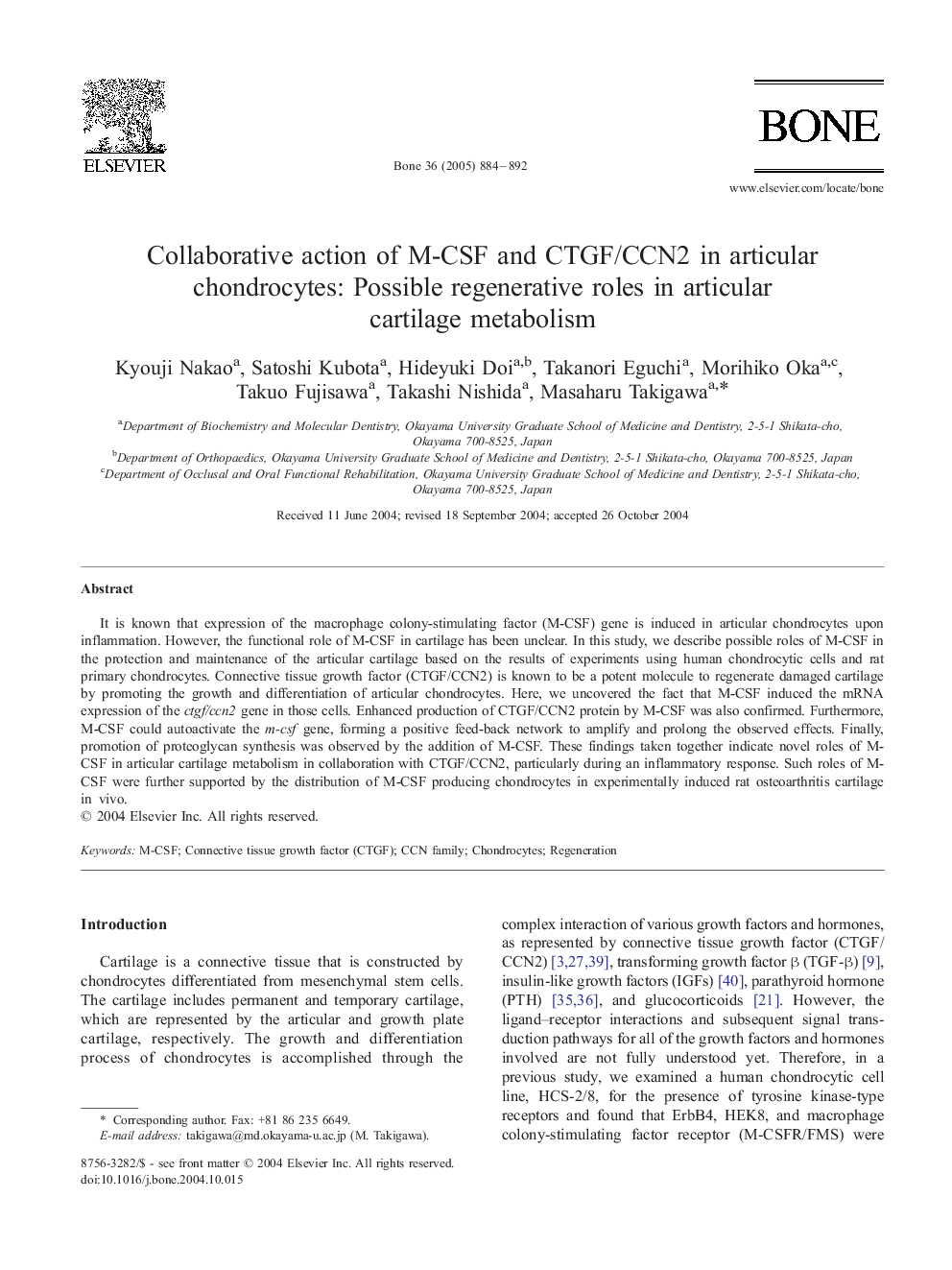| Article ID | Journal | Published Year | Pages | File Type |
|---|---|---|---|---|
| 9105009 | Bone | 2005 | 9 Pages |
Abstract
It is known that expression of the macrophage colony-stimulating factor (M-CSF) gene is induced in articular chondrocytes upon inflammation. However, the functional role of M-CSF in cartilage has been unclear. In this study, we describe possible roles of M-CSF in the protection and maintenance of the articular cartilage based on the results of experiments using human chondrocytic cells and rat primary chondrocytes. Connective tissue growth factor (CTGF/CCN2) is known to be a potent molecule to regenerate damaged cartilage by promoting the growth and differentiation of articular chondrocytes. Here, we uncovered the fact that M-CSF induced the mRNA expression of the ctgf/ccn2 gene in those cells. Enhanced production of CTGF/CCN2 protein by M-CSF was also confirmed. Furthermore, M-CSF could autoactivate the m-csf gene, forming a positive feed-back network to amplify and prolong the observed effects. Finally, promotion of proteoglycan synthesis was observed by the addition of M-CSF. These findings taken together indicate novel roles of M-CSF in articular cartilage metabolism in collaboration with CTGF/CCN2, particularly during an inflammatory response. Such roles of M-CSF were further supported by the distribution of M-CSF producing chondrocytes in experimentally induced rat osteoarthritis cartilage in vivo.
Related Topics
Life Sciences
Biochemistry, Genetics and Molecular Biology
Developmental Biology
Authors
Kyouji Nakao, Satoshi Kubota, Hideyuki Doi, Takanori Eguchi, Morihiko Oka, Takuo Fujisawa, Takashi Nishida, Masaharu Takigawa,
